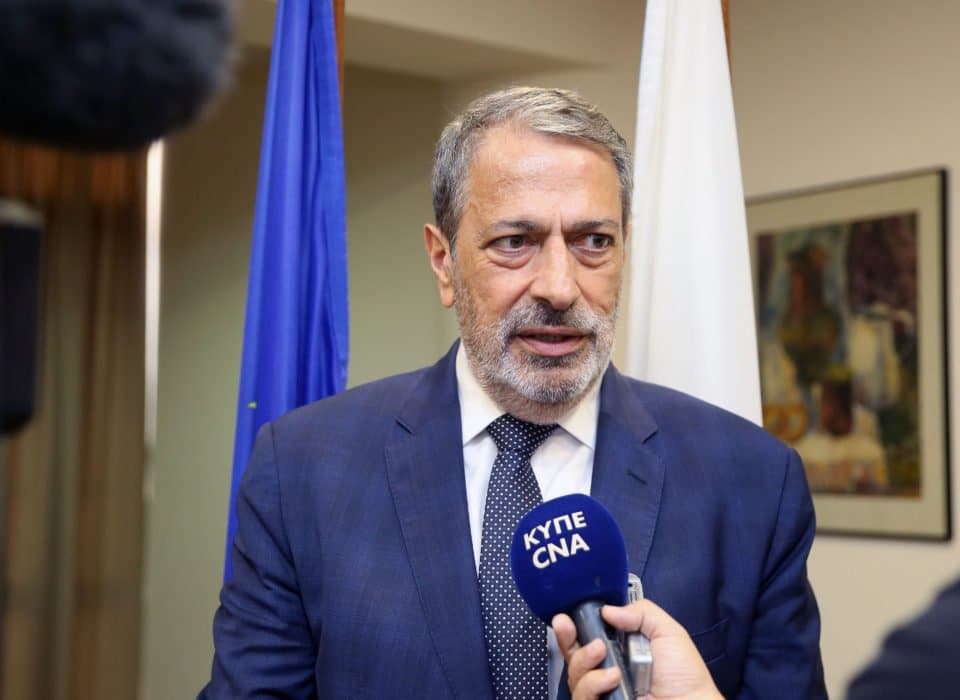MPs on Wednesday derided attorney-general George Savvides’ position regarding his decision to not prosecute former police drug squad chief Michalis Katsounotos for refusing to answer questions put to him by the Anti-Corruption Authority.
The Legal Service and the Anti-Corruption Authority are currently embroiled in conflict with one another over the decision, which came after Katsounotos had been called by a team of three legal experts appointed by the authority to speak to them.
He had been called as part of an investigation into deputy attorney-general Savvas Angelides’ alleged conflicts of interests, but insisted that he was not obliged to answer their questions and refused to answer some of them.
At the time, the legal experts, two British barristers and one Cypriot lawyer, suggested that Katsounotos’ refusal to speak may have made him criminally liable, but the Legal Service refused to initiate proceedings against him.
At Wednesday’s meeting of the House ethics committee, Akel MP Irene Charalambidou came down on the side of the Anti-Corruption Authority, saying “the law gives the right to remain silent only in the case of self-incrimination.”
“In this case, Katsounotos was simply summoned to answer some questions. It is evident from the authority’s announcement that the attorney-general went the extra mile to cover up his decision not to prosecute Katsounotos,” he said.
Anti-Corruption Authority head Harris Poyiadjis was also invited to speak at the committee, saying his authority is “suffering” due to the incident and the lack of prosecution, adding, “we are not performing an interrogation, but an investigation.”
“If we give him the right to remain silent when the law says he has to answer, what will the investigating officer tell him?” he asked, saying that such a set of circumstances would cause confusion among those questions.
“The only right he has is to not answer questions which would incriminate him,” he added.
“He cannot come and say he will not answer any questions. Therefore, we are expressing this concern because if suspects are found in future and we ask for their criminal prosecution, the attorney-general with this attitude will tell us their constitutional rights have not been respected and he will stop proceedings.”
With this in mind, he said there is a need for a “compliance mechanism” in such proceedings regarding the Legal Service, explaining that his authority is able to register private criminal cases but only for disobedience of provisions of the law.
Charalambidou spoke again following the end of questioning, saying the case regarding Katsounotos is of the “utmost importance” as it will fall into the same sphere of influence as the Legal Service’s bid to remove auditor-general Odysseas Michaelides from his post.
“One of the main cases cited [in the case against Michaelides] is the report he wrote into Angelides, where a former client of his office was suspended using the unchecked suspension of criminal prosecution. Katsounotos’ testimony was decisive,” she said.
For this reason, she said, “the question arises as to whether or not there is a conflict for the attorney-general and his deputy to suspend a criminal prosecution requested by the Anti-Corruption Authority to a person who by refusing to testify did not cooperate.”
With this in mind, she said parliament “must proceed with a revision of the constitution” to separate the attorney-general’s powers.
Meanwhile, Volt MP Alexandra Attalides expressed her surprise at the attorney-general’s claim that his decision to not prosecute Katsounotos was “in the public interest”.
She called for the Anti-Corruption Authority to be given the power to carry out its own independent investigations, saying such a bill had been tabled in 2022 but had not yet been discussed.






Click here to change your cookie preferences